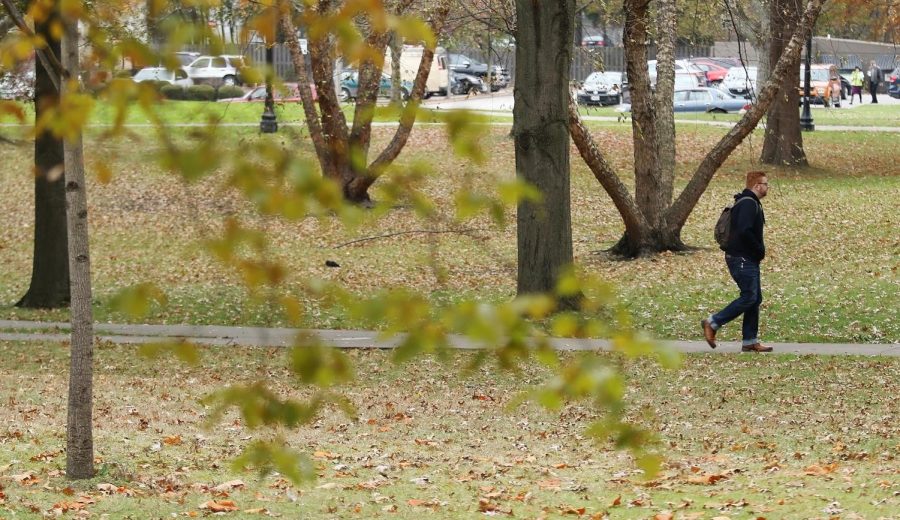Amid faculty concerns, university officially announces new break for Fall 2018 semester
December 11, 2017
In the closing moments of the Faculty Senate meeting Monday, Melody Tankersley, the senior associate provost and dean of graduate studies, said the university will move forward with implementing a two-day break at the end of the eighth week of the fall semester beginning next academic year.
“Since last spring, we have been working really hard to figure out how to do this,” Tankersley said. “How do we implement a fall break and not take instructional time? There is only one way to do that, and that one way is to begin classes two days earlier, on a Thursday and a Friday.”
To accommodate the change, students living on campus will move in on the Sunday before classes begin.
“To do this, we’ll need further conversation about how it will impact, going forward, spring and summer time,” Tankersley said. “So right now, (those) terms run back-to-back without any break in between them. So to implement starting two days earlier, we would need to look into the future of what implications that would have.”
Tankersley said she hopes to come back to Faculty Senate in February to discuss whether days should be taken from the summer or spring semester to make room for the break.
Welcome Weekend, the series of events typically taking place during move-in weekend, will be pushed into the week leading up to Thursday as a result of the change.
John Stoker, a member of Faculty Senate and an assistant professor of English at the Kent State Ashtabula campus, disagreed with the need for a break at all.
“I think the whole idea of a fall break is a solution looking for a problem,” Stoker said. “I have never had a student ask me for a fall break. I had never wished for a fall break when I was a student. This whole thing is unnecessary.”
Michael Chunn, a professor of music and Faculty Senate member, reminded the room that a fall break already exists: Thanksgiving break.
Tankersley agreed with Chunn in saying Thanksgiving recess is a break in the fall semester, but argued it doesn’t serve the purpose the imminent mid-semester breaks are intended to fulfill.
“Our students’ well-being is of a concern not only for our academic side, but for our colleagues who work with them every day — day in and day out — and provide services beyond the classroom,” Tankersley said. “They are gravely concerned about what they see in their interactions with students. … Thanksgiving week is the eleventh week of the semester, and that’s a long time in (those faculty members’) opinion for young students, especially those who are in their first time away from home, to go without a sanctioned opportunity to get home.”
Pamela Grimm, an associate professor of marketing and entrepreneurship, said her concern with the fall break lies in the opportunity for students to miss more time than they are scheduled to.
“One of the things I observed in the Thanksgiving weekend is the relatively high number of students who feel empowered, since there is no class on, now, Wednesday, Thursday or Friday, to make Monday and Tuesday optional for their classes,” Grimm said. “And I am concerned that the same thing will happen when we move to the extra break.”
Tankersley also clarified, for students who may not be able to go home for the break, “services will be provided,” but did not say whether an extra fee to stay would be charged.
Nicholas Hunter is the academic affairs reporter. Contact him at [email protected].












